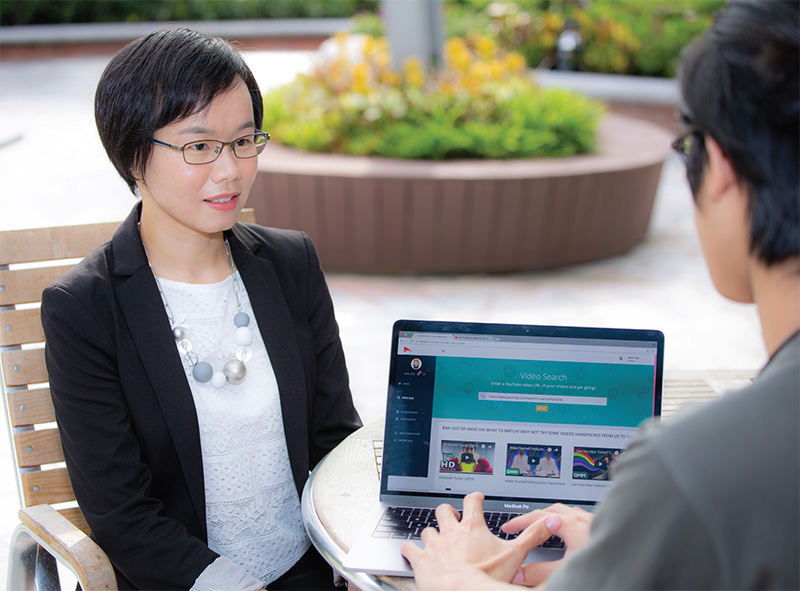
Dr Phoebe Lin introduces the features of the English learning software “IdiomsTube”.
A PolyU-developed software can automatically generate English learning tasks and monitor learning progress to aid self-directed English learning.
Exposure to diverse and authentic language materials outside the classroom is vital to foreign language learning. With the rise of internet television and social media, watching English television drama and films, as well as listening to English pop songs have become daily routines of young people. As such, popular media is one of the most preferred self-directed English learning strategies.
Yet lacking professional guidance, learners generally fail to grasp the noteworthy language features in the online television programmes and monitor their own learning progress systematically. The immense volume of media available presents another challenge, making it difficult for learners to identify those that best suit their levels. With over $2 million funding support from the government, Dr Phoebe Lin at the Department of English has conducted three projects integrating psycholinguistics, big data and computer-assisted language learning to provide a solution for self-directed English learning through online television programmes.
Dr Lin first conducted a series of research on online television programmes and social media to collect data and categorise the authenticity of vocabulary, voice speed and difficulty of phraseology. Based on this information, her research team created an intelligent English learning software “IdiomsTube” (www.idiomstube.com) for online self-directed English phraseology learning.
Not only could this software automatically generate a series of phraseology learning tasks for any learner-chosen YouTube, it could also monitor the learner’s progress and provide personalised learning plans. The learning activities include pre-learning exercises with usage and examples of idioms, post-video cloze exercises, learning progress summary and review, as well as recommended online television programmes etc.
Going forward, future work will add more types of learning activities such as pronunciation practice. Dr Lin also hopes to extend the software to support other forms of internet media to further improve the guidance provided to learners and enhance the effectiveness of self-directed language learning.
Dr Lin’s research on computer-assisted language learning has been published in journals such as System, Applied Linguistics and the International Journal of Corpus Linguistics, and in the book Language Learning Beyond the Classroom.♦
